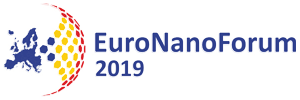Olga Glumac

Olga Glumac
Olga Glumac is a consultant working in the international area at the Sociedade Portuguesa de Inovação (SPI) in Porto, Portugal.
Over the past decade, Olga has been engaged in a multicultural community-development, educational programme design and implementation (i.e. project management, facilitation, coaching and training). Olga has participated in several residential training courses for advanced trainers in multicultural contexts under Youth in Action/Erasmus+ Programme so she acquired competences in assessing and analysis of learning/capacity-build needs through both quantitative and qualitative approach, always apropriating language, matertials and participatory approaches to suit the best the intercultural learning and learning styles of individuals/collective.
At SPI, Olga is working in the areas of Science, Technology and Innovation, Policy Design, Urban development, Cultural Heritage, International and Intercultural Dialogue and Cooperation through Horizon 2020 projects such as: Nano2ALL (nano2all.eu), SISCODE (siscodeproject.eu), VIDA (vidaproject.eu), Lab for Urban Renaturing of Bragança supported by Designscapes (Designscapes.eu); and EuropeAid projects such as Support to participation in EU Programmes – Serbia.
Olga is a PhD holder in area of Design (Social Design & Innovation), implemented under four-year scholarship of the Foundation for Science and Technology (FCT), as a joint degree between the University of Porto and the University of Aveiro. She is a practitioner of co-creation (i.e. codesign and co-production). Her passion is design-led innovation, research and policy making with and for local actors of micro, meso and macro communities.
Golden Paragraph
Olga Glumac is a consultant working in the international area at the Sociedade Portuguesa de Inovação (SPI) in Porto, Portugal. She is working in the areas of Science, Technology and Innovation, Policy Design, Urban development, Cultural Heritage, International and Intercultural Dialogue and Cooperation through Horizon 2020 projects such as: Nano2ALL (nano2all.eu), SISCODE (siscodeproject.eu), VIDA (vidaproject.eu), Lab for Urban Renaturing of Bragança supported by Designscapes (Designscapes.eu); and EuropeAid projects such as Support to participation in EU Programmes – Serbia.
Olga is a PhD holder in area of Design (Social Design & Innovation), implemented under four-year scholarship of the Foundation for Science and Technology (FCT), as a joint degree between the University of Porto and the University of Aveiro. She is a practitioner of co-creation (i.e. codesign and co-production). Her passion is design-led innovation, research and policy making with and for local actors of micro, meso and macro communities.
Title: NANO2ALL ROADMAP: FOR A MORE INCLUSIVE NANOTECHNOLOGY DEVELOPMENT IN EUROPE
Over the past decades, awareness has grown that the impact of technologies is not always predictable, and unintended or unforeseeable consequences might occur. This unpredictability is inherent in the increasing complexity of new and emerging technologies (including nanotechnology) and their development processes. Inclusive (societal engagement) approaches implemented under the terms of responsible research and innovation (RRI) can enable the identification and integration of inputs from stakeholders and the public into decision-making on research and innovation (R&I), contributing to the development of socially acceptable and desirable research and products.
NANO2ALL included diverse mapping and participatory activities (including citizen and multi-stakeholder dialogues across Europe) to explore what is required to foster the implementation of such inclusive approaches in nanotechnology development in Europe. NANO2ALL found that there are several conditions that have to be in place simultaneously in order to truly enhance societal engagement across nanotechnology R&I value chains. Outcomes from the mapping and participatory activities and the identified conditions were further explored through desk research and expert consultation. Key findings and recommended actions were developed into a roadmap. The recommended actions are to be undertaken by EU-level and national decision-makers for creating the necessary conditions for enhanced inclusiveness in nanotechnology R&I decision-making processes.
